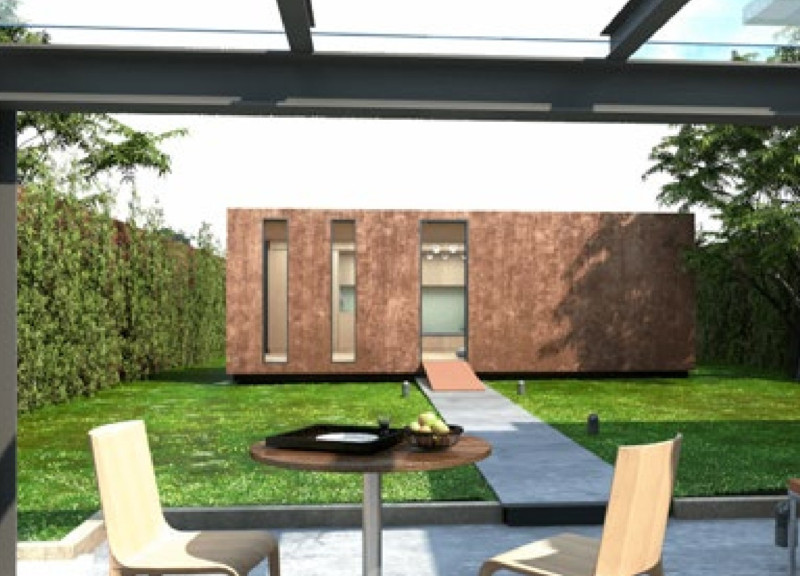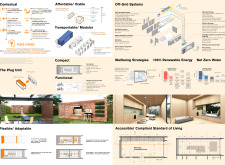5 key facts about this project
Set within the urban landscape of London, the micro-home project addresses important housing challenges faced by young professionals and elderly citizens. It offers a practical living solution that fits well into existing residential areas while focusing on sustainability and affordability. The design centers around flexibility, allowing spaces to adapt to the needs of the occupant, making it particularly suited for today's urban environment.
Adaptability
The micro-home is designed as a modular unit that can be transported easily in a cube container. This flexibility allows it to be placed in residential gardens, promoting intergenerational living. By doing this, the design supports both independence and close connections among family members. The layout is efficient, ensuring comfort without sacrificing important features.
Sustainability Features
The design aims for net-zero energy use by 2025. It uses a 3.8 kW photovoltaic system to meet seasonal energy needs, paired with two photovoltaic-thermal panels that produce both electricity and hot water. Sustainable water management is also a focus; Zero Mass Water Panels capture humidity for drinking water, while a rainwater collection system and greywater reuse add to the environmental benefits.
Functional Layout
The layout prioritizes functionality and comfort in a compact form. Open living spaces give residents the freedom to arrange their homes as they see fit. A standout feature is the transformable bathroom, which can serve multiple functions, making the most of the available space. Additionally, the garden wall serves as a practical storage solution for bicycles and gardening tools, enhancing the interaction between the home and outdoor environment.
Technological Integration
Smart technology plays an important role in this design, with a home hub and visual analytics dashboard included to help monitor energy use and environmental conditions. This integration allows residents to manage their living spaces more effectively.
The use of Structural Insulated Panels helps maintain thermal performance while reducing the overall carbon footprint. Such careful choices reinforce a commitment to sustainable living in the urban setting of London, highlighting how thoughtful design can create practical solutions for modern challenges.




















































